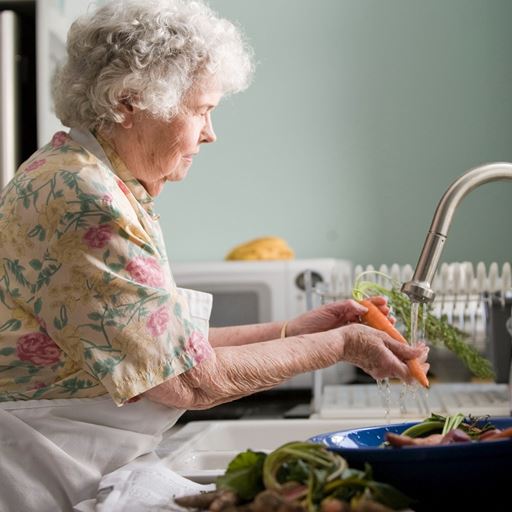The postcode lottery of rehabilitation
-
Date
Mon 7 Sep 20

The neighbourhood we live in and the support networks we have around us could determine whether we can continue living an independent life as we grow older and experience poor health, according to a new Essex study.
Previous research has found that following a stay in hospital or a referral from a health visitor, those who complete a rehabilitation programme – tailor-made to their specific needs and aimed at providing them with the skills they need to look after themselves – report having a better quality of life, both mentally and physically, than those who are simply provided with ongoing care.
They can do more for themselves, need less support from professional carers and are more likely to stay in their own home, rather than needing to go into hospital or residential care – so a win win situation for both the individual and the public purse.
But the success rate of rehabilitation programmes is patchy – with some people doing much better than others. The new study aimed to find our why, and what could be done to make sure everyone has the best outcome.
Researchers tracked the outcomes of over 8,000 people who had been offered a rehabilitation programme through Essex County Council between 2008 and 2014. They took into consideration not only the person’s individual circumstances and health conditions but also information about the area they lived in – was it a wealthy area or poor one, was there good public transport and shops nearby?
To do this they looked at neighbourhood-level deprivation levels as well as commercial MOSAIC data, which provides a more detailed analysis by categorising similar people into 66 ‘lifestyle’ types.
Dr Darren Thiel, from the Department of Sociology at the University of Essex, explained: “What we found is that people need broader help to be independent, they cannot always help themselves.
“So, for example, someone can be taught to cook for themselves following a stroke, but they won’t be able to do that if there are no local shops, or transport to shops to buy ingredients, or they don’t know anyone who will go and get their shopping for them. In short, to be able and independent, people need supportive social and geographical environments.”
The researchers found that 13 weeks after completing a rehabilitation programme 68% of people could look after themselves. Unsurprisingly, the likelihood of having a successful outcome decreases with age, and those with the most serious health issues are also less likely to manage with no outside help. Researchers found no differences in success rates between men and women, or between people from different ethnic backgrounds.
But they did find that living in a very deprived neighbourhood compared to a highly prosperous one reduced the chances of success by between 3% and 5% - depending on age - and living in a high-crime area reduced the chances of success by 4%.
“Overall our study shows how deprivation and neighbourhood factors have a significant effect on the relative success of reablement programmes, and this needs to be taken into account when planning and delivering future programmes.
“We found some of the largest neighbourhood effects when looking at the MOSAIC geo-social categories - more so than just looking at neighbourhood-level deprivation, where one group showed a 15% lower probability of relative success and a staggering 21% less chance than the most ‘successful’ Mosaic group.
“What this indicates, amongst other things, is how commercial ‘big data’ is able to produce more finely-grained analysis, but also that these geo-social surroundings have as big effects on recovery as the main health conditions.
“It is clear from our analysis that It is no good just looking at the individual and their specific needs and health conditions – broader social, economic and environmental factors also need to be taken into consideration if everyone is to get the maximum benefit from reablement programmes, “ said Dr Thiel.
The paper ‘Enabling and constraining successful reablement: Individual and neighbourhood factors’ was written with fellow Essex academic Professor Nick Allum, from the Department of Sociology, and former Essex student Chris Jacobi, who is now at Nuffield College, University of Oxford. It has been published in PLOS ONE.




